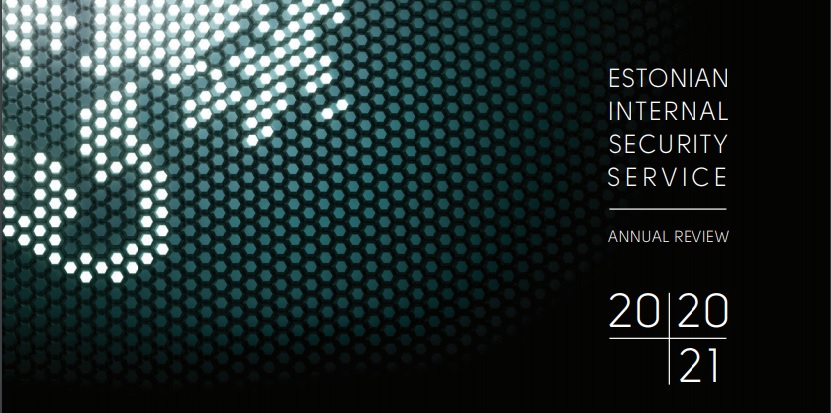
China Monitor is our brand-new program that analyses China’s economic and foreign policies. It also aims to predict the consequences of Beijing’s policy for the global economy, the EU as well as Central and Eastern European countries such as Poland.
Date: 30 April 2021
Author: Łukasz Kobierski
Estonian Counterintelligence Report and the Chinese Threat
The Estonian Internal Security Service (Kaitsepolitseiamet, KAPO), has published its Annual Review earlier in April. As in the case of other Baltic states, it was observed that Chinese intelligence activity has increased and that actions undertaken by the PRC in the region have become more and more bold.

Already in the foreword, the Director General of KAPO, Arnold Sinisalu, stated that apart from reviewing the Kremlin’s intelligence activities, the ones conducted by the special services of the communist People’s Republic of China’s should be discussed in more detail than ever before. Beijing’s actions have raised the concerns of the counterintelligence agency for a while. Director Sinisalu added that the threat is no longer theoretical, as it was confirmed by the first judicial order – the Chinese intelligence services had recruited an Estonian citizen.
Chinese intelligence activity was outlined in one of the sections of the report. According to its authors, the outbreak of COVID-19 pandemic in China may have had a greater impact on the intelligence activities of that country than those of Russia. Detention of Chinese intelligence agents, for instance, in Poland and Germany, as well as numerous such cases in the United States, indicate that Chinese intelligence operatives would be an increasing threat to Estonia, a member of the European Union and NATO.
Intelligence activity is part of China’s drive to become a world leader, also in economic and technological terms. Beijing is seeking to establish its position in Europe step by step and this must be considered by Tallinn as far as its collaboration with the People’s Republic of China (PRC) and attraction of Chinese capital investment are concerned. Moreover, Estonian companies need to keep in mind that the Chinese government has obliged its citizens and enterprises, among others, to cooperate with intelligence services upon request.
Much of the report is devoted to the criminal case of an Estonian citizen who was accused of collaborating with Chinese intelligence services. Tarmo Kõuts established cooperation with Chinese military intelligence with the help of an intermediary. He met with the representatives of this agency on several occasions in multiple Asian countries. Chinese military intelligence officers introduced themselves as employees of a Chinese think tank.
Tarmo Kõuts, whose job was related to the defense sector, had access to state secrets, but, according to the authors of the report, he did not manage to disclose them. In exchange for valuable information, the researcher received cash, paid trips to Asia, accommodation in expensive hotels and ability to participate in banquets held at expensive restaurants. The long-term objective of Chinese intelligence was to obtain secret data. Yet, the Estonian counterintelligence agency acted in a timely manner and classified information was not disclosed. Apart from Kõuts, one other person in Estonia was detained and accused of identical involvement.
The Estonian Internal Security Service stressed that the intelligence services of hostile countries could recruit people with very different backgrounds, not only civil servants. Moreover, it highlighted that consulting companies located in the European Union, but originating from outside the EU and NATO member states, could pose an espionage threat.
The database of Zhenhua Data Information Technology, leaked in mid-2020, contained a significant number of individuals (and their close relatives) involved in Estonian social affairs, politics and other areas of public life. Additionally, the authors of the report acknowledged cyber security threats and vulnerability to potential economic pressure from Beijing.
The report of the KAPO confirms the conclusions reached by other countries over the past several years. Chinese intelligence services are acting and trying to acquire information more and more boldly. The uncovered recruitment of an Estonian citizen forces Tallinn to keep a closer eye on the Chinese citizens in their country. The intelligence activity of the PRC is presented similarly in the reports of other security agencies in the region. In comparison to the report of the Estonian Foreign Intelligence Service (Välisluureamet) published in February, the newly released document centers on the aims and methods of recruitment rather than the threats from the PRC.
Support Us
If content prepared by Warsaw Institute team is useful for you, please support our actions. Donations from private persons are necessary for the continuation of our mission.
All texts published by the Warsaw Institute Foundation may be disseminated on the condition that their origin is credited. Images may not be used without permission.















